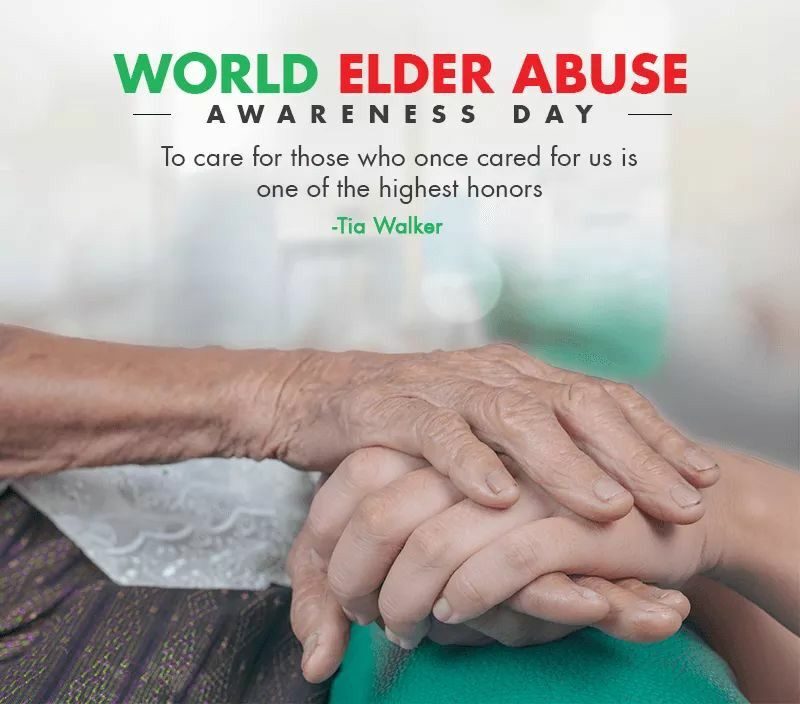🛑 World Elder Abuse Awareness Day: 5 Shocking Realities Behind Elder Abuse That the World Must Face Today
🧓 Introduction: When Silence Hurts More Than Words
Our elders — the pillars of our past, the narrators of our culture, and the guardians of wisdom — deserve dignity, safety, and respect. Yet, millions across the globe suffer from a tragic reality: elder abuse.
- 🧓 Introduction: When Silence Hurts More Than Words
- 🕰️ History of World Elder Abuse Awareness Day
- 📊 Important Facts About Elder Abuse
- ❓ FAQs: Understanding Elder Abuse
- Q1. What is considered elder abuse?
- Q2. Who is usually the abuser?
- Q3. Why don’t elders report abuse?
- Q4. How can we prevent elder abuse?
- 🌟 Significance of World Elder Abuse Awareness Day
- 💜 Observance & Activities
- 📚 Real-Life Example
- 🎯 Key Points Summary
- 🧬 Importance in Our Lives
- 💌 Wishes, Messages & Quotes for Elder Abuse Awareness Day
- 🏥 Daily Life Impacts
- ⚖️ Legal Framework in India (and beyond)
- 💥 5 Shocking Realities We Must Confront Today
- 🔚 Conclusion: Break the Silence, Build the Respect
To confront this crisis, World Elder Abuse Awareness Day (WEAAD) is observed every year on June 15. It’s a day to shine light on hidden suffering, spread awareness, and commit to building a world where aging is not a punishment but a privilege.
🕰️ History of World Elder Abuse Awareness Day
📜 Background:
World Elder Abuse Awareness Day was initiated by the International Network for the Prevention of Elder Abuse (INPEA) in 2006, and later recognized by the United Nations General Assembly in 2011 through Resolution 66/127.
🗓️ Timeline Highlights:
| Year | Milestone |
|---|---|
| 2006 | First WEAAD observed globally by INPEA |
| 2011 | UN officially designates June 15 as World Elder Abuse Awareness Day |
| 2017 | WHO highlights elder abuse as a public health issue |
| 2020 | COVID-19 pandemic exposes higher abuse risks for isolated elders |
| 2023 | Theme: “Closing the Circle: Addressing Gender-Based Violence in Older Age” |
📊 Important Facts About Elder Abuse
🌍 1 in 6 people aged 60+ experienced abuse in the past year.
💔 Most cases go unreported — estimated at only 1 in 24 being formally reported.
👴 Abuse can be physical, emotional, financial, sexual, or neglect.
👩⚕️ In care institutions, 2 out of 3 staff admit to committing abuse in the past year (WHO 2022).
🧠 Elder abuse often leads to depression, premature death, PTSD, and physical injuries.
💸 Financial abuse is the most common form, costing elders billions annually.
❓ FAQs: Understanding Elder Abuse
Q1. What is considered elder abuse?
Elder abuse is any intentional or negligent act that causes harm or risk to an older adult. It includes:
Physical harm
Emotional manipulation
Sexual exploitation
Financial fraud
Neglect or abandonment
Q2. Who is usually the abuser?
Sadly, the majority of abusers are family members, caregivers, or people in positions of trust.
Q3. Why don’t elders report abuse?
Due to fear, dependence, shame, or even cognitive decline, many elders suffer in silence.
Q4. How can we prevent elder abuse?
Educate caregivers
Offer emotional support to elders
Enforce legal protections
Encourage community participation and regular check-ins
🌟 Significance of World Elder Abuse Awareness Day
✅ Raises global awareness about an often ignored social evil
✅ Mobilizes government, caregivers, and society to take action
✅ Empowers elders to voice their suffering
✅ Encourages legislation and community frameworks
✅ Promotes respectful and safe aging environments
💜 Observance & Activities
🏢 Organizations & Governments:
Host conferences, webinars, and legal workshops
Launch helplines, support centers, and awareness drives
🧓 Community Centers:
Conduct interactive storytelling, music, and therapy sessions
Promote intergenerational bonding events
👨👩👧👦 Families:
Reconnect with older members through dialogue and care
Encourage transparent communication
💻 Online Campaigns:
Hashtags like #WEAAD, #RespectElders, #ElderRightsNow
Share real-life stories, survivor videos, and support resources
📚 Real-Life Example
In 2020, a 74-year-old woman in New Delhi was found to have suffered neglect and financial exploitation by her own son. Her case led to court intervention, and she later became a spokesperson for elder rights in her district.
Her message:
“What broke me was not the pain — it was the silence. But I spoke up, and I hope others will too.”
🎯 Key Points Summary
📅 Date: June 15 annually
🧓 Recognized by: UN & WHO
⚖️ Abuse Types: Physical, Emotional, Financial, Neglect
💡 Goal: End the stigma, protect elder dignity
🚨 Crisis: Largely underreported, globally pervasive
🧬 Importance in Our Lives
Elder abuse is not a “them” issue — it’s a “we” issue. Every one of us has parents, grandparents, or older neighbors who may be vulnerable.
This day reminds us to:
🌟 Build safer homes and institutions
🙏 Acknowledge the contributions of our elders
🔄 Shift from neglect to nurture, from silence to support
💌 Wishes, Messages & Quotes for Elder Abuse Awareness Day
💬 “The dignity of elders is the mirror of a compassionate society.”
💬 “Don’t let our silence be louder than their suffering.”
💬 “Raise your voice. Protect their choice.”
💬 “A society that values its elders values its soul.”
💬 “It takes strength to grow old — and even more to face abuse. Stand by them.”
🏥 Daily Life Impacts
🧠 For Elders:
Greater sense of safety and dignity
Awareness of their legal and emotional rights
Increased social inclusion and support networks
👨👩👧👦 For Families:
A reminder to treat elders with compassion, patience, and empathy
Encourages open discussions about caregiving challenges
🏛️ For Society:
Promotes policies, legal reforms, and training programs
Encourages intergenerational solidarity and respect
⚖️ Legal Framework in India (and beyond)
Maintenance and Welfare of Parents and Senior Citizens Act, 2007 (India)
The Hague Convention on the International Protection of Adults
Elder Justice Act (USA)
These laws aim to provide institutional support, enforce financial protection, and create a legal route for elders to seek justice.
💥 5 Shocking Realities We Must Confront Today
Family Isn’t Always Safe – Most elder abuse happens within homes.
Elder Abuse Is a Silent Pandemic – Millions suffer without ever reporting.
Financial Abuse Is Rampant – Elders are cheated, coerced, or manipulated out of pensions, property, and savings.
Neglect Can Kill – From missed medications to emotional isolation, neglect leads to real health decline.
Ageism Normalizes Harm – Treating older people as burdens reinforces abuse cycles.
🔚 Conclusion: Break the Silence, Build the Respect
World Elder Abuse Awareness Day is more than just a date — it’s a wake-up call.
To every caregiver, policymaker, and citizen:
“Your empathy can be someone’s lifeline.”
Let’s make respecting our elders not a cultural courtesy but a global norm. Because how we treat the oldest among us reveals the heart of our humanity.








